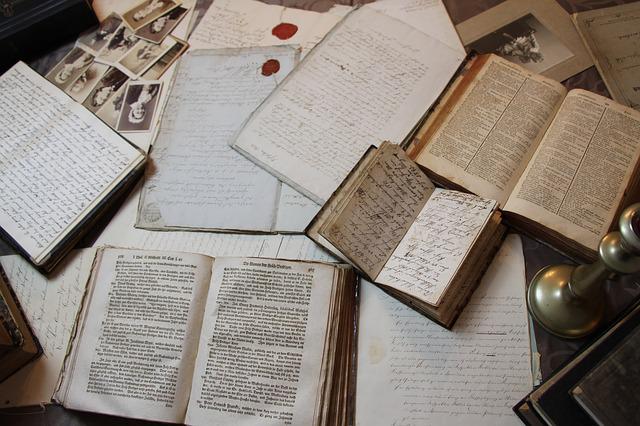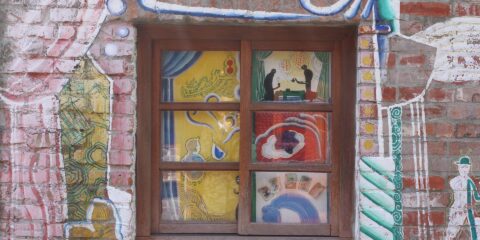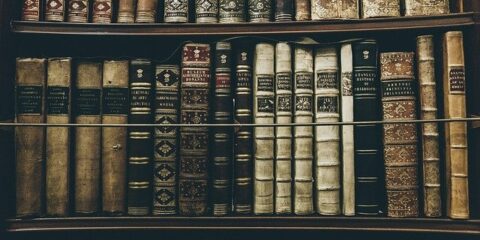| author | Book name | summary | |
| 1 | Feng Youlan | 《中国哲学史》History of Chinese Philosophy | The basic structure of this book has been generally accepted in the history of Chinese philosophy. Many views (such as the famous scholars should be divided into two schools: Huishi’s “contract difference” and Gongsun Long’s “lijianbai”; the two Cheng’s thoughts are different, which are the pioneers of psychology and Neo Confucianism; and the similarities and differences between Cheng and Zhu, Lu and Wang, Zhu and Wang, etc.) have not been issued by their predecessors and enjoy a high reputation in the academic circles. |
| 2 | Hu Shi | 《中国哲学史大纲》Outline of the history of Chinese Philosophy | In traditional China, Confucian classics are superior to all academic studies, and Hu Shi’s history of Chinese philosophy regards it as an independent discipline and separates Confucian classics from it. Therefore, Feng Youlan said that “in the modernization of the study of the history of Chinese philosophy, Hu Shi’s founding contribution can not be buried”. The modernization of the history of Chinese philosophy, in fact, is the academic transformation, from the model of classics to the model of Western learning, which shows the significance of Hu Shi’s founding work. |
| 3 | Dai Nian Zhang | 《中国哲学大纲》 Outline of Chinese Philosophy | The author Zhang Dainian studies Chinese philosophy from the inherent system of Chinese philosophy. The book is divided into three parts: cosmology, life theory, and knowledge theory. The author points out that Chinese philosophy holds that the universe is a stream of changes, everything is changing, and the whole universe is an endless process of changes. The book especially highlights the theory of life and the declaration of the way of harmony between man and me, which is considered by the author to be the greatest contribution of Chinese philosophy. The theory of knowledge in Chinese philosophy is quite simple, which directly recognizes that things are outside and that things are knowable. |
| 4 | Cai Yuanpei | 《中国伦理学史(外一种)》History of Chinese Ethics (foreign) | Our country has long attached importance to ethics, but there is no history of ethics. Recently, ethical circles doubt the trust of the times. Those who import different theories, such as the wind like a candle, almost have the potential to balance and conflict with each other. If we fail to balance the inherent ideological system of our nation, we will be lost in the wrong way, which covers the urgency of this matter. |
| 5 | Wang Zhixin | 《中国宗教思想史大纲》Outline of the history of Chinese religious thought | This book is an important work of Mr. Wang Zhixin, a famous scholar in China. This book, the author is divided into six chapters to describe the history of the evolution of Chinese religious thought from ancient times to today. The author pays special attention to the ideological changes after the Zhou and Qin Dynasties. The historical materials adopted before the Zhou and Qin Dynasties do not include those that are relatively unbelievable; There are references to ancient books, but they are also skeptical. This work can be said to be a foundational work in the study of the history of religion in China. |
| 6 | Yin Haiguang | 《中国文化的展望》Prospect of Chinese culture | The prospect of Chinese culture is the most important work of the author in his later years and an important document in the history of modern thought. After its publication, it has had a strong response in academic circles in Taiwan and Hong Kong. Many well-known scholars wrote and commented that it shows “a Chinese intellectual’s academic conscience and moral courage in pursuing China’s modernization” and is “a new milestone in discussing Chinese cultural issues”; It also has considerable influence in mainland academic circles and is praised as “Chinese classics that can not be ignored”. |
| 7 | Liang Shuming | 《东西文化及其哲学》Eastern and Western cultures and their philosophy | Eastern and Western culture and philosophy is one of Liang Shuming’s representative works, which was first published in 1921. Since the 1970s and 1980s, with the rise of Modern Neo Confucianism research at home and abroad, this book has attracted people’s attention again and is regarded as the pioneering work of Modern Neo Confucianism. The author believes that there must be a fundamental change in the development of human culture, that is, “from the Western attitude to the Chinese attitude”, because “the most perfect living thought is no more than Confucius”. |
| 8 | Fang shouchu | 《墨学源流》 The origin of Mohism | Mozi’s love is based on his behavior, and his troubles will be with the people. So that the hungry can get food, the cold can get clothes, the laborer can get rest, the rich and the poor can get equal, the high and the low can get equal, the punishment and prison can get public, the tyranny can be punished, and the virtuous and virtuous can be established. This is what the top of the mountain wants to do. He has no self for life. He writes and teaches Mencius. Fang Zi deeply admired the trace of Mozi and regretted the dark cover of Mohism. He invented the legacy of science and established the purpose of “origin and flow” as the outline of group Mohism. |
| 9 | Qian Mu | 《两汉经学今古文平议》On the study of classics in the Han Dynasty | The academics of an era must have the common trend and common spirit of an era, which are all out of the needs of the times. To catch up with the changes of the times, we need to decline, but there is a new academic generation. If we look for it, not only do the teachers of modern literature follow this trend and embrace this spirit, that is, the teachers of ancient literature are in harmony with this trend spirit, but also begin to form the academic Yan of the same era. |
| 10 | Luo Zhixi | 《科学与玄学》Science and metaphysics | What is science? What is Metaphysics? What is the relationship between science and Metaphysics? The author synthesizes the research results of western ideological circles with independent thought and uses the discussion method of peeling a banana and pulling a cocoon to explain the nature of science and metaphysics, the problems it studies, the methods it uses, its strengths and limitations so that readers can clearly recognize the status and relationship between the most modern science and metaphysics, which still has special value and significance in the history of modern Chinese thought. |
| 11 | Ouyang jingwu | Ouyang jing wu Internal and external studies | Buddhism is internal learning, and all non-Buddhism is external learning, Buddhism is internal learning, and all non-Buddhism is external learning, Internal learning focuses on personal inner cultivation and liberation, External studies take secular facts as arguments,Works on Modern Chinese Buddhism. |
| 12 | LV simian | 《理学纲要》Outline of Neo Confucianism | Neo-Confucianism has been practiced for thousands of years and has a deep relationship with the thoughts of Chinese people; However, its book rate is more than zero, fragmented, and lacks organization and its quality is not literary, so the readers are tired. Although there is a study plan, people are still sick and heavy, and the dead can’t get their essentials. It is a book that lists the important theories of Neo Confucianism, their relationship with the previous academic thought, and the influence of the later social customs. Although there are few volumes, the program is slight. Reading this part, we can know the general knowledge of Neo Confucianism. Hence the name “outline of Neo Confucianism”. |
| 13 | He Lin | 《文化与人生》The Culture and Life, | In essence, learning must be independent and free. Learning that cannot be independent and free can not be regarded as learning at all. We hope that China will gradually have a free and independent government to respect free and independent academia; At the same time, there are gradually free and independent academics to contribute to a free and independent government. |
| 14 | Zong baihua | 《艺境》Art scene | “A generation of aesthetic masters integrating Chinese and Western art theories” |
| 15 | Jin Yuelin | 《论道》On Tao | As for the thought of Tao, I think it is the subject matter of Yuan Xue. Now I would like to express that my attitude toward meta science is different from that toward epistemology. By studying epistemology, I can stand outside the scope of the object of knowledge, and I can temporarily forget that I am human. Where the problem directly involves people, I can study it with a calm attitude, and unilaterally forget that I am human, so calm my attitude. The study of metascience is not the case. Although I can forget that I am a human being, I cannot forget that “heaven and earth coexist with me, and all things are one with me”. I not only seek a rational understanding of the research object but also seek emotional satisfaction in the research results. |
| 16 | Fu Qinjia | 《中国道教史》History of Chinese Taoism | The first book on the history of Taoism However, all religions have their own history, while Taoism has none. |
| 17 | Xu Dishan | 《道教史》History of Taoism | The history of Taoism is the first time that Chinese people have made a more scientific study and interpretation of the origin of Taoism. Starting from historicism and standing on the dual position of self and other, the author studies the identity form of Taoism in history, makes a preliminary analysis of the religious and cultural characteristics of Taoism for the first time, and establishes the important position of Taoism in Chinese history. |
| 18 | Jiang Weiqiao | 《中国佛教史》History of Chinese Buddhism | The first general history of Buddhism written in modern methods, In 1929, Hu Shi wrote the biography of master Heze’s divine society and Jiang Weiqiao published the history of Chinese Buddhism. After that, the whole 1930s became the golden age of Chinese Buddhist research. |
| 19 | Tang yongtong | 《汉魏两晋南北朝佛教史》History of Buddhism in Han, Wei, Jin, southern and Northern Dynasties | The history of Buddhism in the Han, Wei, Jin, Southern, and Northern Dynasties deeply and systematically analyzes the history of the introduction of Indian Buddhism in the Han, Wei, Jin, Southern and Northern Dynasties. According to a large number of historical materials and careful and detailed research, it summarizes the ideological evolution of the introduction of Buddhist thought into China. The book pays special attention to expounding the historical process of foreign Indian Buddhist culture and local culture in China, which are dependent on Chinese culture but have contradictions and integration due to different cultures, which are gradually absorbed by Chinese culture and become an integral part of Chinese culture. |
| 20 | Liang Qichao | 《佛学研究十八篇》Eighteen chapters on Buddhist Studies | In 1923, the commercial press first published the first volume of Liang Qichao’s Buddhist article “recent works of Liang rengong”, which is divided into three volumes, of which the middle volume contains 12 Buddhist articles personally selected by Liang Qichao in 1922 (Appendix I). In 1932, Zhonghua Publishing House published the collection of ice drinking rooms, which collected 18 Buddhist articles by Liang Qichao (Appendix 10) and then compiled into a separate edition to publish 18 Buddhist studies. In 2014, the book was included in the Chinese modern academic masterpiece series of the commercial press. |
| 21 | Taixu | 《法相唯识学》”Knowledge only study of FA Xiang” | It is a true reality to worship only the Buddha and complete in personality Buddhists are not science but science, not religion but religion, and not philosophy but philosophy. Their essence lies in the consciousness of Dharma. |
| 22 | Meng Wentong | 《佛道散论》Buddhist and Taoist essays | A collection of papers on religious studies by Mr. Meng Wentong, Representative of the research results of religious philosophy, Guiding students: the first sentence quoted Lu Xiangshan: “even if I don’t know a word here, I have to be a person.” The second sentence is his own creed: “a man with an evil mind can’t make great achievements in learning.” |
| 23 | Wen-hui Yang | 《等不等观杂录》Miscellaneous records of equal and unequal views | The father of the revival of modern Chinese Buddhism and the father of the revival of Chinese Buddhism One of the people who have the greatest relationship with the prosperity of Chinese Buddhism. |
| 24 | Zhu Qianzhi | 《中国景教》Chinese Nestorianism | Nestorianism was a branch of Christianity introduced into China in the Tang Dynasty. It was treated favorably by five emperors, including Emperor Taizong, Emperor Gaozong, and Emperor Xuanzong of Tang Dynasty. Because of its spread and development in China, it reached the prosperous stage of the so-called “ten dharmas” and “hundreds of temples”. However, due to various reasons, after 200 years of the spread of Nestorianism in the mainland, Emperor Wuzong of the Tang Dynasty suffered miserably when he killed the Buddha in Huichang, and then made a comeback in the Yuan Dynasty. In the 17th century, the tablet of the great Qin Dynasty was unearthed in Xi’an, and research on Nestorianism began immediately. Many people in academic circles at home and abroad participated in this work, and dozens of studies and documents were published. “Chinese Jingjiao” is the last work written by the late researcher of the Institute of world religions of the Chinese Academy of Social Sciences, the famous philosopher, historian, and Orientalist Zhu Qianzhi (1899-1972), on the basis of previous research results. |
| 25 | Xu Zongze | 《中国天主教传教史概论》Introduction to the history of Catholic missionaries in China | In his early years, he entered the Jesuit junior college, then studied in Europe and America, obtained a doctorate, and was promoted to priest. After returning to China, he successively served as the editor-in-chief of the Holy Church magazine and the director of the library of Xujiahui Catholic Church. The book systematically combs and studies the historical process of Catholicism’s introduction into China and its migration and development. Together with the attached historical documents such as various inscriptions and temple records, it plays an important reference value and data provision role in various special studies of scholars. |
| 26 | Wu leichuan | 《基督教与中国文化》Christianity and Chinese culture | The author Wu Beichuan is Hanlin of the former Qing Dynasty, a professor and President of Yanda |
| 27 | Zhao zichen | 《神学四讲》Four lectures on Theology | Zhao Zichen (1888-1979) is a Christian theologian and scholar in China. From Deqing County, Zhejiang Province. He is one of the most influential theologians in China in the 20th century and the earliest advocate of “Chinese systematic theology”; It integrates theologians, religious educators, poets, and writers. He enjoys a high reputation in the Western Christian community and is known as “the chief scholar who interprets the Christian faith to the eastern soul”. “Four lectures on theology”, “the trial work of Chinese people in theology”, is the representative work of Zhao Zichen’s later thought. Mr. Zhao tried to construct a set of “Chinese systematic theology” separated from western theology. Four lectures on theology were published in 1948. This work is obviously different from Zhao’s previous works, and it is also his last theological work. Therefore, the four lectures on theology can be used as a summary of Zhao’s theological thought in the 1940s. |
| 28 | He Lin | 《近代唯心论简释》A brief explanation of modern idealism | The author is not only proficient in the philosophical thoughts of Fichte, Hegel, Kant, Spinoza, and other Western philosophers, but also has a lot of experience from the Enlightenment of Neo Confucianism in the song and Ming Dynasties. Therefore, he can write this work integrating the two philosophical traditions of China and the West. In the book, the author puts forward “comparative can become a system” (Hu Shengyu) and his own “idealism”, forming a unique philosophical thought in the |
| 29 | Jin Yuelin | 《知识论》(上、下)On knowledge (Part I and part II) | The purpose of this book is to say that knowledge governs change with constancy, special with universality, and concrete with abstraction. With this view of knowledge, the importance of abstraction is obvious. |
For FI and study only, thank you.







